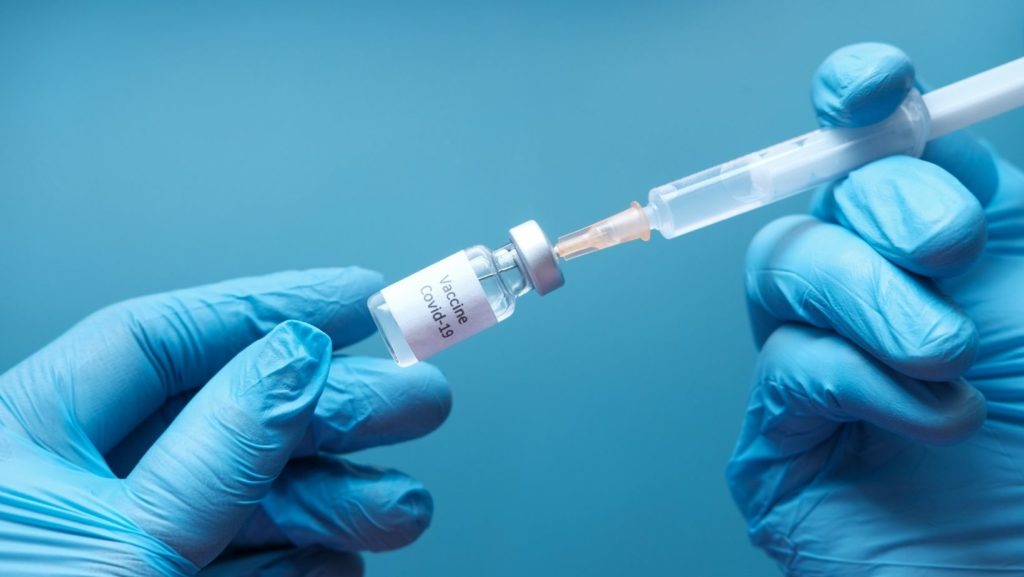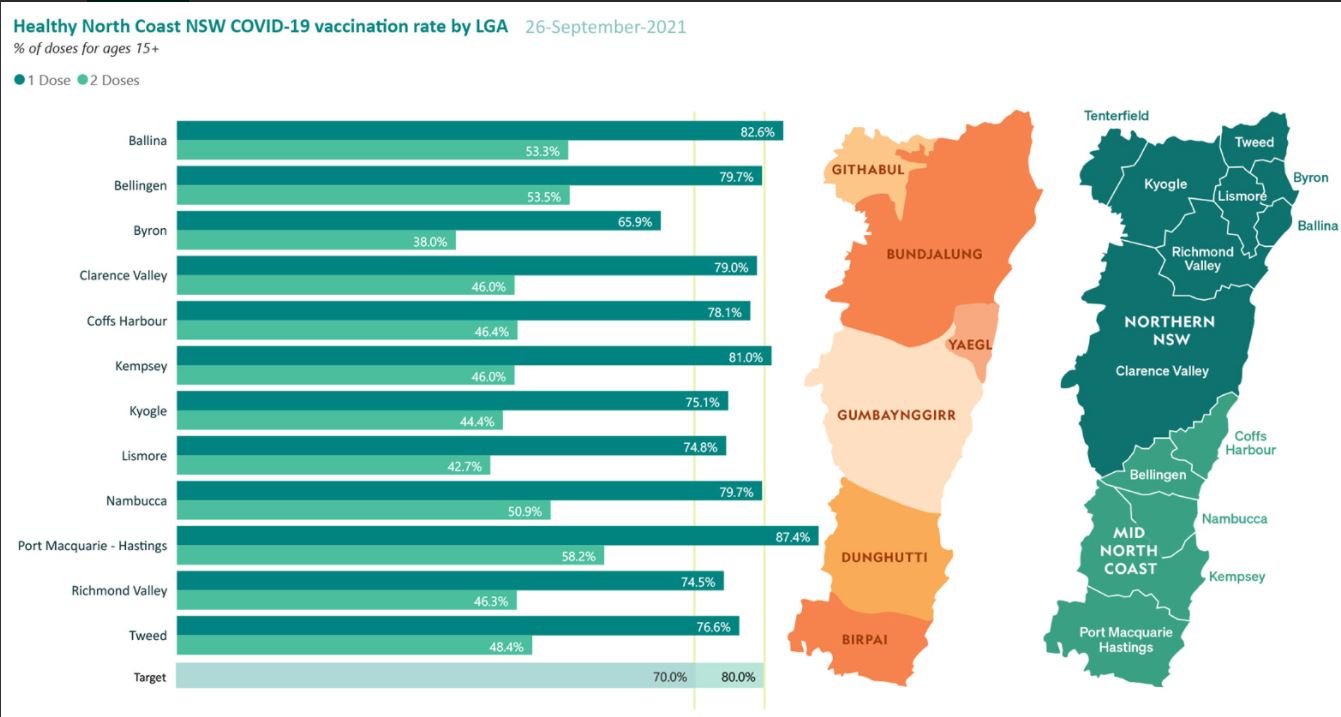Susanna Freymark
The state is set to open from October 11 as long it reaches its 70% double dose vaccination target.
Health Minister Brad Hazzard said while high vaccination rates were the key factor in the roadmap to recovery, covid would continue to circulate in the community.
“We are closing-in on the 70 per cent double dose mark and when we achieve it there will be significant changes to our public health advice and the key difference will be how that advice is applied to people who are vaccinated and to those who are not,” Mr Hazzard said.
The changes include businesses being responsible for taking reasonable measures to stop unvaccinated people entering their premises.
On the spot fines of $5,000 will apply to businesses not complying with the Public Health Order vaccination requirements.
What does this mean for Kyogle and Richmond Valley with Kyogle and Casino in lockdown?
There are 28 active covid cases in the Northern Rivers with the two new Lismore cases linked to the Kyogle cluster.
As of September 26, Healthy North Coast reported that Kyogle had a 44.4% of people fully vaccinated and 46.3% in Richmond Valley.
Overall rates in the region are increasing about 5% a week, which is on par with national vaccination trends, Healthy North Coast said.
COVID: Testing clinic set up at Kyogle hospital for long weekend
Does our region open if we don’t meet the 70% vaccination rate?
The government isn’t saying yet.
How our local businesses will deal with policing customers who are unvaccinated won’t be easy.
Many businesses have already reported coping flak for asking customers to mask up. Small businesses with few staff will find the policing of the unvaccinated particularly difficult.
Deputy premier John Barilaro said today that staff in regional LGAs only need to prove one vaccine dose and a booking for a second dose.
Advice on what life will be like after October 11 is listed below
Some of the key public health advice for the general community will be:
- Everyone, vaccinated and not vaccinated, is urged to get tested if they have any symptoms and immediately self-isolate until a negative result is received.
- Whether you are vaccinated or not vaccinated, if you test positive for covidyou must self-isolate for 14 days.
- Close contacts in the community will include household members of positive cases and close social contacts of positive cases, such as partners and friends, who you spent time in close proximity with, even if fully vaccinated. Anyone may also be assessed as a being a close contact following a risk assessment, including at workplaces, high-risk settings, such as healthcare and aged care, and other specific settings such as schools and child care centres, or where an outbreak has been identified.
- If you are a close contact of a positive case and vaccinated, you must get tested and self-isolate for seven days. On day six after exposure, you must get tested again. If a negative result is received and you are well, you can end isolation after day seven. For the following seven days you must work from home where practicable, not attend hospitality settings, and not attend a high-risk settings even if it is your place of work.
- If you are a close contact of a positive case and not vaccinated you must get tested and immediately self-isolate for 14 days. On day 12, you should get tested again. If a negative result is received, you can end isolation after day 14.
- The Service NSW QR code check-in system will remain in place in the general community. This system will be used to notify people who were in the same venue as a positive case. People will be asked to monitor for symptoms and get tested if they become unwell. Other settings, including schools, workplaces and high-risk settings, such as healthcare and aged care, will have specific risk assessment approaches.
- People aged 16 years and over will only be allowed entry into some venues or settings if fully vaccinated, along with people with exemptions. In some venues, children under 16 will have to be accompanied by a fully vaccinated member of their household to enter. This includes hospitality venues, non-critical retail stores, personal services, sporting, recreation and entertainment facilities and events. Critical retail such as supermarkets and pharmacies will still be accessible to those not fully vaccinated. There are several options to show proof of covid vaccination or exemption.
Advice for business include:
- If a staff member tests positive, whether they are vaccinated or not vaccinated, they must self-isolate for 14 days and follow the advice from NSW Health. Businesses will refer to their covid safety plan and risk assessment approach for further instructions on notifying other staff.
- Businesses must inform NSW Health if three or more employees test positive for covid in a seven-day period.
- Businesses can reduce the risk of closure or staff going into isolation by implementing rigorous covid safety plans. Other proactive steps businesses can take include ensuring staff are vaccinated and implementing regular onsite testing programs for workers.
- Businesses will be responsible for taking reasonable measures to stop unvaccinated people entering premises. For example, having prominent signs stating requirements, Service NSW QR codes, staff checking vaccination status upon entry and only accepting valid forms of evidence of vaccination.
- Authorised officers will monitor businesses re-opening, particularly those that have vaccination requirements, for example hospitality, retail, gyms, and personal services such as hair and beauty.
- Penalties may apply for individuals and businesses who don’t comply. On the spot fines of $1,000 may apply to individuals for not complying, or for using fraudulent evidence of vaccination or check-in. On the spot fines of $5,000 may apply to businesses for not complying with the Public Health Order vaccination requirements. Further penalties may apply for significant breaches.
Visit nsw.gov.au for the latest information.




